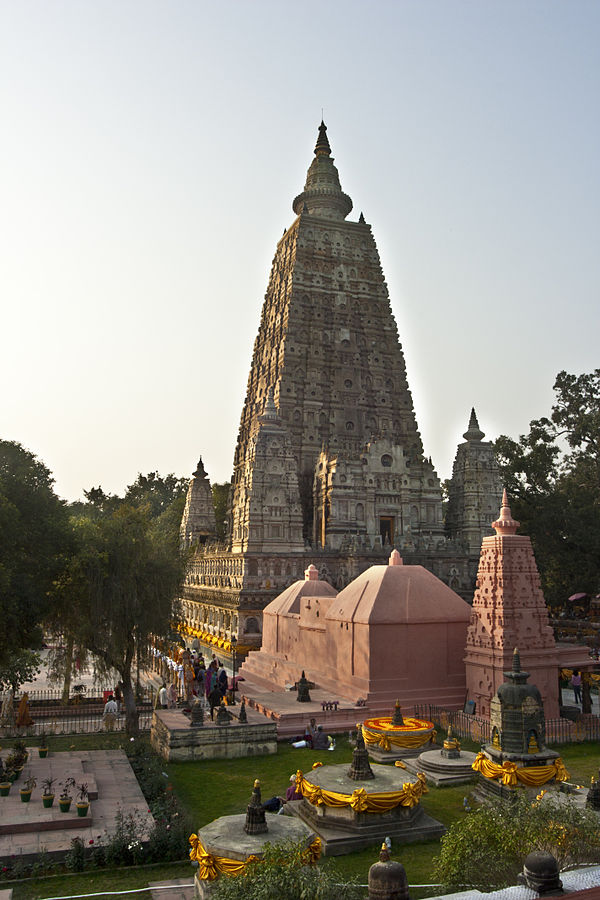Control Over Belief? Buddhists Rally to Reclaim Mahabodhi Temple Management

M.I. Khan, TwoCircles.net
Gaya (Bihar): Buddhists are making a renewed and assertive push for total control over the management of the Mahabodhi Temple in Bodh Gaya, Bihar, that is the holiest of Buddhists. This shift in tone comes with threats to intensify protests in November and December 2024.
Last month, hundreds of Buddhists, including monks, activists and followers dressed in traditional deep maroon and saffron, gathered in Patna for a rally organised by the All India Buddhist Forum and All Buddhist Organisations of India. They sought to liberate the Mahabodhi Temple — often referred to as Bodh Gaya Temple — from Hindu oversight.
The rally received unexpected support from Opposition leaders of the Rashtriya Janata Dal (RJD) and the Congress, predominantly from Dalit communities, providing a significant morale boost to the Buddhists advocating for control over the 1,500-year-old temple, located in a town revered as the birthplace of Buddhism.
At present, the temple is managed by a nine-member committee appointed by the Bihar government, with the district magistrate serving as chair. The crux of the conflict lies in the Mahabodhi Temple Management Act of 1949, which gives Hindus a predominant role in the temple’s management. According to the legislation, the committee must include four Buddhists and four Hindus, with the district magistrate as the ex-officio chairman and the Mahanth of the Sankaracharya Math as the ex-officio Hindu member. This structure results in a Hindu majority, undermining the voice of Buddhists, who claim their representation is largely nominal.
Buddhist activists have long demanded either an amendment to or the repeal of the 1949 Act. Bhadant Budhgosh from Telangana articulated this sentiment, stating, “Amendment in the Act will ensure the management of the temple is handed over to Buddhists.” He criticised the management’s control by non-Buddhists, emphasising the need for Buddhists to reclaim their sacred site.
Akash Lama, an activist from Darjeeling, expressed frustration at the prolonged Hindu control of the temple: “How long will we sit silent and tolerate the control of Hindus over our holiest shrine? We will fight for Buddhist management; it is our constitutional right.”
He highlighted the neglect of Buddhist demands by successive governments and asserted, “Buddhists are not asking for control of a Hindu temple; we are demanding control of our most sacred site. If the government continues this old game, we will be forced to protest and launch hunger strikes.”
Bhadant Pragyasheel, a former secretary of the Bodh Gaya Temple Management Committee, noted, “Successive governments have disappointed Buddhists by neglecting our genuine demands. Is it not a violation of the Constitution that the Mahabodhi Temple is managed by Hindus? There is no other religious site globally controlled by another religion.”
He continued, “If Buddhists were in charge, donations would be properly utilised for development and humanitarian work.”
He recalled the vibrant march from the Gandhi Maidan to the Buddha Smriti Park on September 17, 2024, where demonstrators carried placards demanding, “Hand over the temple to Buddhists,” “Buddhists can run the Bodh Gaya Temple Management Committee,” and “Abolish the 1949 Act; it is anti-constitutional.”
Bhadant Anand from Bundelkhand echoed this sentiment, asserting, “Buddhists have full rights over the Mahabodhi Temple, yet it remains outside our control. We are confident we can free the temple from non-Buddhist management.”
Buddhist women Geeta Devi and Jaya Yashpal stressed the importance of the Mahabodhi Temple as Buddhist heritage, advocating for complete control. Geeta, from Darbhanga, contested the portrayal of Buddha as an incarnation of Vishnu, calling it part of a conspiracy to undermine Buddhist claims over the temple.
Jaya added that organisations like the Vishwa Hindu Parishad (VHP) and the Bajrang Dal have consistently opposed amendments favoring Buddhist control, while the Bihar government has delayed action on this matter.
Historically, the demand for Buddhist control can be traced back to Angarika Dhammapala, a Sri Lankan missionary, who first raised the issue in 1891. This demand gained momentum in the 1990s and early 2000s.
Chandra Bodhi Patil, a monk, reiterated, “We Buddhists want full control over the management of the Mahabodhi Temple in Bodh Gaya.”
Activist Vilas Kharat announced plans to mobilise thousands for protests in November and December. “We will continue to fight until Buddhists gain full control of the Bodh Gaya Temple,” he declared.
